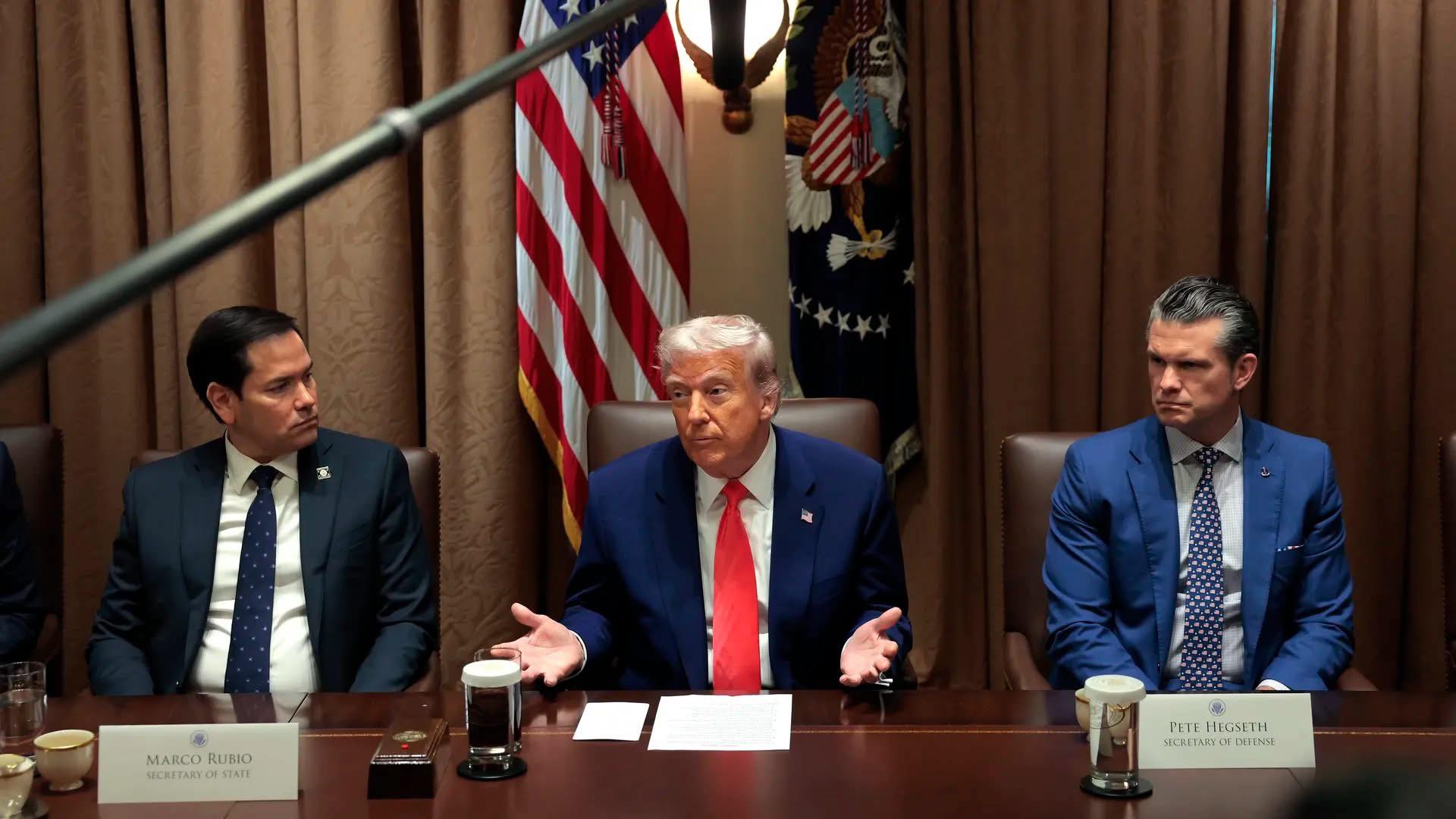WASHINGTON, D.C. – A high-stakes meeting inside the White House Situation Room has sent shockwaves through the international community. According to senior U.S. officials, former President Donald Trump is actively considering a military alliance with Israel to strike Iran’s nuclear facilities — a move that could reshape the global balance of power.
The 80-minute closed-door briefing, first reported by Axios, took place on Tuesday and involved top members of Trump’s national security team. Sources claim the discussion focused on whether the United States should participate in a joint preemptive strike, specifically targeting heavily fortified sites like Iran’s underground Fordow enrichment facility.
“Only the U.S. has the power to finish what Israel started,” a senior defense official said.
🇮🇱 Why Now?
Israel has already launched limited airstrikes against Iran under Operation Rising Lion, citing imminent threats from Tehran’s nuclear escalation. Trump, known for his aggressive foreign policy, is reportedly demanding Iran’s “unconditional surrender”, and has made it clear he views Iran’s Supreme Leader Ayatollah Khamenei as an “easy target.”
Though no official decision has been made, military assets — including U.S. carriers and long-range bombers — have reportedly been repositioned in the Middle East, suggesting that strategic options are being seriously considered.
⚖️ Congress Pushes Back
However, not everyone in Washington is on board. A bipartisan coalition in Congress is fast-tracking a resolution to block any U.S. military action without Congressional approval, citing fears of another prolonged conflict in the region.
Even within the Republican party, Trump is facing pushback from prominent figures like Tucker Carlson and Marjorie Taylor Greene, who argue that involvement in another foreign war contradicts the America First agenda.
“This isn’t our war,” said Rep. Greene. “Why are American soldiers being put in harm’s way again?”
🔮 What Comes Next?
For now, Trump has not made a final decision. Insiders say he’s carefully weighing the political risks versus the strategic rewards, especially with the 2024 election approaching and global tensions rising.
Military analysts believe that a coordinated U.S.–Israel strike could delay Iran’s nuclear program by several years — but it would almost certainly provoke a wider regional conflict, potentially drawing in groups like Hezbollah and triggering retaliation from Iran-backed forces across the Middle East.

